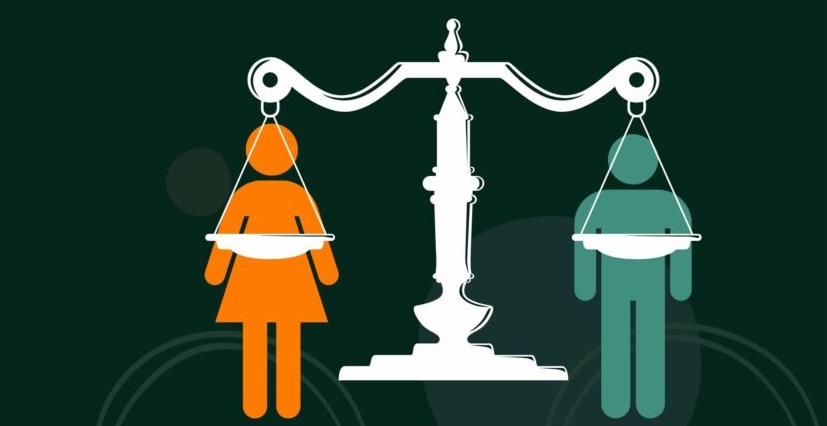
A bench of the Supreme Court, Chief Justice Dr. DY Chandrachud and PS Narsimha have sought more clarity in the petition challenging anti conversion laws of four states which was filed in January 2021 by Citizens for Justice and Peace (CJP). When the matter came up for hearing before the bench on January 2, 2023, Senior advocate Mr CU Singh appearing for Citizens for Justice and Peace sought interim reliefs with respect to the anti-conversion laws of Uttarakhand and Himachal Pradesh since the other two laws of Uttar Pradesh and Madhya Pradesh were ordinances then and later became Acts.
To seek clarity in this matter, the bench directed that a brief note be filed about the laws and if petitions are pending before any High Courts then the details of those as well have been sought. On this basis the bench will decide whether to let the high courts decide on merits or if the laws are para materia then whether they should all come before this bench. The bench also sought clarity on which of these are Acts and which were the ordinances that later became Acts. The bench also granted liberty to include these Acts (which were earlier ordinances, namely Uttar Pradesh and Madhya Pradesh) in the fresh petition.
Additional Solicitor General of India KM Nataraj and Additional Solicitor General for Uttar Pradesh Garima Prasad made out a case for the hearings to continue in the high court.
Mr Chander Uday Singh, in his extensive arguments, submitted before the bench that in Evangelical Fellowship of India vs. State of Himachal Pradesh 2013 (4) RCR 283 (Civil), which was a judgement authored by Justice Deepak Gupta, the Himachal Pradesh High Court court had set aside Section 4 of the HP Act of 2006 as ultra vires the Constitution and struck down Rules 3 and 5 thereunder and held that the right to privacy and the right to change the belief of a citizen cannot be taken away under the specious plea that public order may be affected. He pointed out that the 2006 Act was repealed and replaced by the Himachal Pradesh Freedom of Religion Act, 2019 in which provisions set aside by the High Court have been included.
“This falls foul of many judgments like Puttaswamy, Shafin Jahan, Navtej Johar… Right to choose a partner is a part of the right to privacy. These laws put a reverse burden of proof on persons converted, on the priest to prove that the conversion was not done by coercion. These provisions are now being weaponized,” Mr Singh submitted.
Mr Singh also pointed out that while the states come up with the same objection every time that High Courts are apprised of the matter, other states have started following suit, giving example of Maharashtra where a GR was recently passed to scrutinize interfaith relationships.
Senior Advocate Indira Jaising sought to challenge the Madhya Pradesh law (which was in tje first instance challenged by CJP) and pointed out how the state’s High Court had barred the state government from using coercion against anyone who disobeys section 10 of the MP Freedom of Religion Act, which requires anyone who wishes to convert to another religion to notify the district administration in advance.
She also pointed out that in an interim ruling the Gujarat High Court as well had declared that the rigours of Section 3, 4, 4A to 4C, 5, 6, and 6A of the Gujarat Freedom of Religion (Amendment) Act shall not operate merely because the marriage is solemnised by a person of one religion with another, without force or by allurement or by fraudulent means and such marriages cannot be termed as marriages for the purposes of unlawful conversion.
The bench has granted two weeks time for parties to have enough time to verify facts and present a brief note before the bench.
Citizens for Justice and Peace, a civil rights group was the first to challenge these two laws and two ordinances in 2020 and 2021.![]()
The petition
The petition initially challenged the Uttarakhand Freedom of Religion Act (2018) and the Uttar Pradesh Prohibition of Unlawful Conversion of Religion Ordinance, 2020. It raised detailed issues of privacy, extra-Constitutional powers to police and non-state actors, the fact that they violate the non-negotiable tenets of secularism, equality and non-discrimination. The three-judge Bench headed by Chief Justice S.A Bobde and including Justices V Ramasubramanian and AS Bopanna issued notice to the two states on January 7, 2021
The same bench then allowed CJP’s amendment petition on February 17, 2021 seeking addition of the Madhya Pradesh Freedom of Religion Ordinance, 2020 and Himachal Pradesh Freedom of Religion Act, 2019 to also be challenged for their constitutional validity.
A comparative analysis of the four laws of Uttar Pradesh, Himachal Pradesh, Uttarakhand and Madhya Pradesh, which have been challenged by CJP, may be read here.
SC Order may be read here.
Related:
CJP’S LOVE JIHAD AMENDMENT PETITION ALLOWED BY SC
LOVE AZAAD! WHAT DOES FREEDOM TO LOVE COST IN CONTEMPORARY INDIA?
“LOVE JIHAD” LAWS CURB INDIVIDUAL AND COLLECTIVE FREEDOMS
CJP’s Love Jihad Petition: SC issues notice to UP and Uttarakhand
CJP moves SC against “Love Jihad” laws